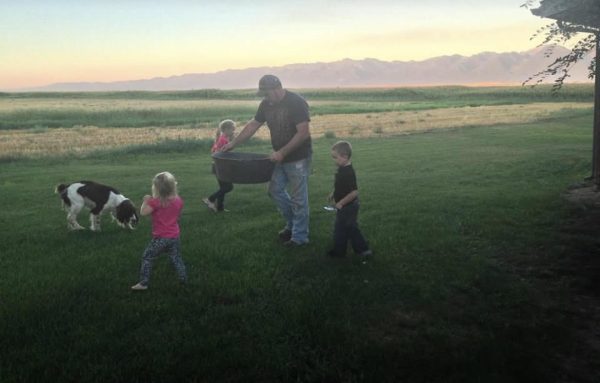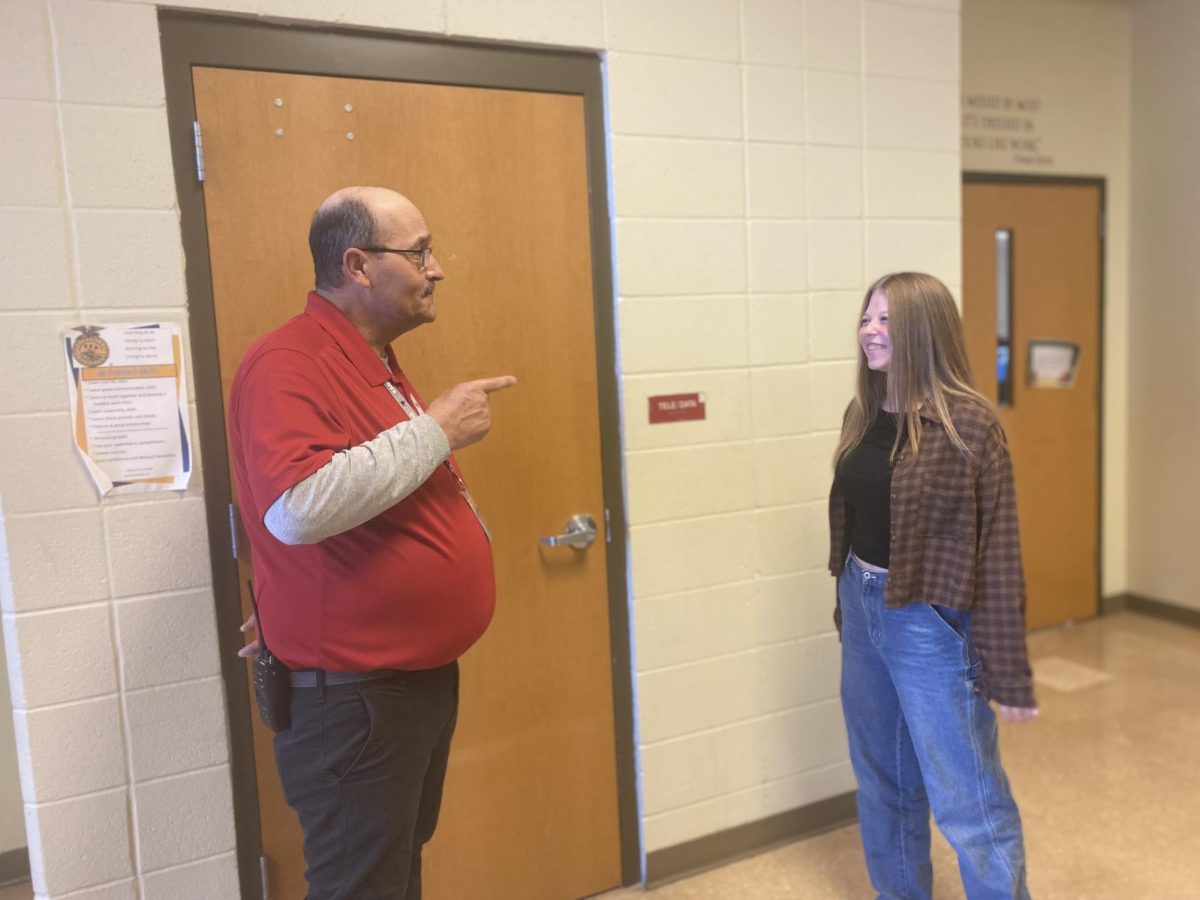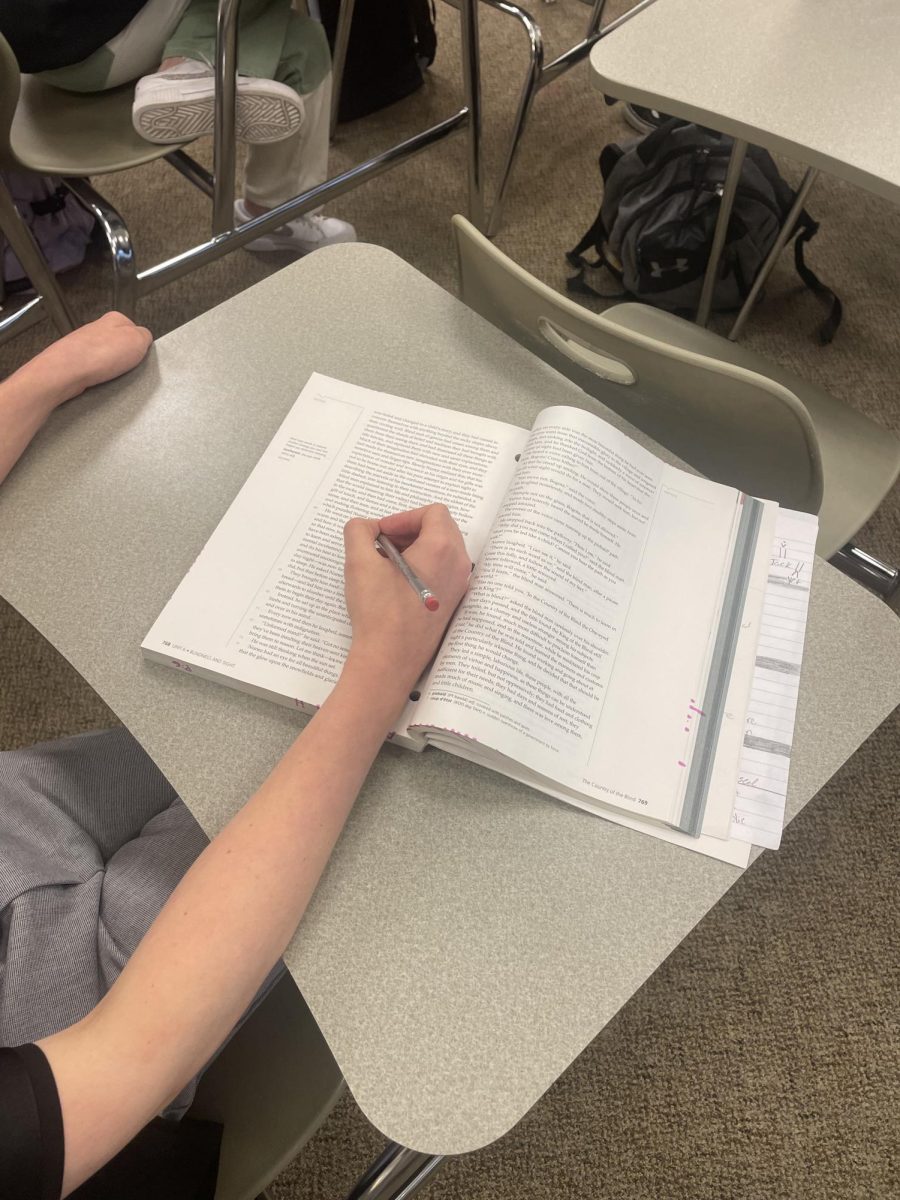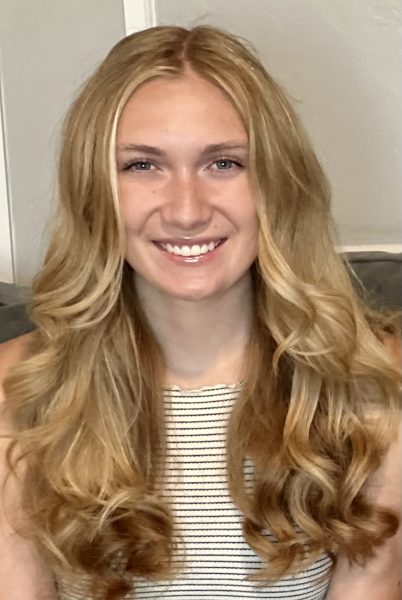When I was a small kid, which was only about a decade or so ago, I remember being able to wake up at eight in the morning and sprint, jump, and swim all day long in the summer. It was beautiful where I grew up. I lived in a grassy valley in Montana that was enclosed by the great, big, and very blue Rocky Mountains. I lived in Big Sky Country where it seemed like the sky extended forever on all sides. I would wade through the wheat fields surrounding my family’s small dairy, my siblings and I would jump in the irrigation canals that watered our land, and in the winters, I could dig snow trenches so large that I could fit my whole body under the snow. It was so remarkable to grow up in a body that enabled me to be active, and I’m eternally grateful for that. I’m scared for my future children, though. I’m afraid that they won’t be able to grow up the way I was lucky enough to due to the ever-increasing epidemic that is obesity, and the way in which America is handling it.

Health At Any Size
The Health At Any Size (HAES) movement has subjectively become relevant on social media in the past year, spiking controversy and misinformation about what the movement believes. Creators on social media platforms like YouTube and TikTok are divided on the movement; some believe the movement is an excuse to stay unhealthy, and others believe it is a necessary step to promote acceptance. It’s challenging to grasp social media noise from an outside perspective. Still, the conversation about the HAES movement is a relevant topic in the real world due to the ever-increasing rate of obesity in America.
The Health At Any Size movement, according to the official Association for Size Diversity and Health (ASDAH) website, the organization “affirms a holistic definition of health, which cannot be characterized as the absence of physical or mental illness, limitation, or disease. Rather, health exists on a continuum that varies with time and circumstance for each individual. Health should be conceived as a resource or capacity available to all regardless of health condition or ability level and not as an outcome or objective of living. Pursuing health is neither a moral imperative nor an individual obligation, and health status should never be used to judge, oppress, or determine the value of an individual.¨
The HAES movement also seeks to promote health equity, end weight-based discrimination, improve healthcare quality regardless of the individual, and stop the weight-centered approach to treating patients of all sizes.
Health At Any Size main components:
-Intuitive eating
-Body acceptance, regardless of body shape or size
-Physical activity for health instead of trying to lose weight or ¨shape¨ the body
The HAES philosophy is relatively new, dating back to the early 2000s. The movement came about as a response to people trying and ultimately being unsuccessful in losing weight. These individuals argued that weight loss provides a false hope to people trying to lose weight, and according to the National Library of Medicine, ¨the HAES perspective suggests that not only are traditional [weight loss] approaches ineffective, but dieting and restriction also cause physical, emotional, and spiritual distress.¨
Overall, the HAES movement suggests that people experiencing obesity grow discouraged and feel that they are not normal when they fail to lose weight. The HAES movement seeks to steer individuals with obesity from thinking that they cannot be healthy without obtaining a certain body size and encourages acceptance to stop discrimination and prejudice directed at body size.
Extraneous Circumstances
I would like to acknowledge some extraneous circumstances that could cause a person to suffer from obesity not due to their lifestyle, but instead a condition they have.
As described by Rauli Perry, a Women’s Health Nurse Practitioner, PCOS (Polycystic ovary syndrome), insulin resistance, and hypothyroidism are three conditions where a person’s metabolic and endocrine system does not allow them to lose weight. These conditions are related to insulin dysfunction and inflammation; an overall simple way to put it is that a person’s body does not run correctly.
Some individuals live in food deserts as well. These areas have limited access to affordable and nutritious foods and supermarkets. Instead, these areas, particularly impoverished areas, have access to food only in fast food places and convenience stores. For example, many New York residents live in food deserts, relying on small corner stores for microwavable food because supermarkets are too far away or expensive.
Additionally, certain disabilities, such as people with mobility limitations and intellectual or learning disabilities, are at a higher risk for obesity.
Research
According to several peer-reviewed studies about the implications of obesity, obesity is considered to be a tremendous risk factor for conditions such as cardiovascular diseases, chronic metabolic disorders, cancer, heart disease, hypertension, type 2 diabetes, and a shortened life span. Now, I know that most of these conditions sound like big words, but these big words can mean the difference between a good or poor quality of life. People who are obese and/or suffer from these conditions may experience pain in their back and joints due to the stress the extra weight puts on them, breathlessness when doing everyday activities, difficulty doing physical activities, and sleep apnea, which is a potentially deadly sleeping disorder in which breathing repeatedly stops and starts.
According to the World Health Organization, obesity is recognized when an excessive amount of body fat presents health risks in an individual, or when an individual’s body mass index (BMI) is over 30. Obesity occurs when an individual is not expending more energy (calories) than they are intaking, which causes the body to store this excess energy as fat, and if enough of this fat is stored as adipose tissue (body fat), then that leads to obesity. There are numerous reasons a person could be obese, and not all of them are the fault of the individual. However, a person could be obese due to a sedentary lifestyle, unhealthy eating habits, the individual’s environment, and the ultra-processed food culture that is Americans’ norm.
Although living an inactive lifestyle and choosing to eat poorly is a significant cause of obesity, it has to be said that if a child grew up with a family who didn’t care about their health and only consumed fast food, then that is another valid cause of obesity. When this child grows up, though, they will think eating unhealthy is the norm and fine because they were raised that way which is, unfortunately, a “genetic” cause of obesity–genetic, of course, in the sense that they inherited their bad eating and exercising habits from their parents.
Also, America has such an ultra-processed food culture that it is almost impossible to escape foods high in saturated fats, trans fats, sugars, etc; a high consumption of these foods can lead to obesity. In fact, America does see a high consumption of these ultra-processed foods due to parents working outside of the home, which makes these parents unable to provide three fresh meals on the table every day. Also, the ease at which one can access fast food, and how cheap it truly is in comparison to traditional ¨healthy¨ foods one can find at any supermarket make ultra-processed food an easy and convenient alternative to making food at home.
These ultra-processed foods have high levels of calories and low nutrition levels, which means that a person may eat a McChicken that is 350 calories, but they won’t feel satisfied and will go back for a large fry (510 calories), a large drink (290 calories), and a dessert (McDonald’s McFlurry, 803 calories) to satisfy them fully, this meal could easily add up to over 1,000 calories which is already about half of the recommended caloric intake for people to eat each day just in one fast food meal.
American culture tends to view food as a reward and a way to socialize. This means that in American culture, food, particularly food that is high in calories and low in nutrition, is at the center of most social interactions and functions. Think of all the birthday parties you went to as a kid, all of the 4th of July barbecues, Christmas and Thanksgiving dinners, pizza or donut parties used as a class reward, etc. What all of these celebrations have in common is the amount of trans and saturated fats ingested.

Professional feedback about health
Olivia Cox is a Registered and Licensed Dietitian and a Certified Nutrition Support Clinician specializing in eating disorders, sports medicine, and diet and nutrition. Cox said, ¨The biggest misconception [about health] is that we need to lose weight or look a certain way to be healthy, and that´s just not true, but culturally, we´re told that every day in ads, magazines, friends, parents sometimes even.¨
¨Our daily habits are the biggest predictors of our long-term health and our quality of life related to our nutrition…I like to view weight as, more often than not as, a side effect of our habits; we can´t directly control our weight but we can control our daily habits and what we´re doing with our time and choices.¨ Cox explained.
Overall, concerning health Cox believes, ¨In general, I think having a lifestyle where we´re moving our body regularly and also eating meals regularly throughout the day that contain fiber, protein, carbohydrates, and having a healthy relationship with food and our body is also really important. So, being able to have that balance and enjoy all the other foods that are out there regularly without impacting our mental health [is important].¨
Sara Poulsen is a Registered Dietitian nutritionist and Licensed Dietitian specializing in bariatric support, weight management, digestive issues, diet and nutrition, and diabetes. Poulsen explained that ¨When you are living in a larger body, and you have an excess amount of fat on your body, your hormones get all out of whack. We have hunger [notification] hormones, ghrelin and leptin, and one hormone tells you when you are hungry, and one hormone tells you when you are full, and leptin is the hormone that tells you when you are full, and that’s stored in your body fat. So if someone has a lot of body fat, you would think: oh, wait, they’re going to know when they’re full, but it kind of works the other way…so it makes it hard to lose weight if you’re never feeling satisfied and full.¨
Marilyn Tarkalson has a Bachelor of Science in Public Health and has received certification through Doctor Colin Campbell’s Institute, Center for Nutritional Studies and Plant-Based Nutrition. Tarkalson said ¨Your lifestyle choices will drive what your overall health is because the top five killers in America are 80% preventable, and that is all from your lifestyle choices.¨
Tarkalson explained that ¨nutrition is extremely important because you can’t out-exercise bad eating habits….Weight is the easiest indicator to determine if you’re in a healthy range or not.¨
Concerning obesity, Tarkalson said, ¨Having extra adipose tissue is not healthy. It increases heart disease, blood pressure, cancer, and diabetes; that’s just reality. If you are carrying extra weight that puts extra stress on your joints, and it’s harder to walk. If you look at the science and research, the heavier you are, especially if you get in the obese category, your mortality rate is cut down, you’re not going to live as long; you are going to have diseases like heart disease which is the number one killer [in America].¨
Tarkalson explains there is an ¨extremely big [obesity] crisis; I think it’s our number one crisis. Our medical costs are through the roof, our government subsidizes sugar. We spend more money on growing crops to feed the animals [than growing fruits and vegetables]. One in three kids is obese; that’s a crisis.¨
Overall, Tarkalson believes that ¨When you fix the food, then the other areas of your health naturally improve. When you eat the right food, you naturally lose weight; when you lose weight, you feel better about yourself mentally and emotionally…you sleep better. So it’s like a domino effect.¨
What do Canyon Ridge High School students think about the Health At Any Size Movement?
¨It’s about time something like this was established! I hope this movement can grow to the point of impact and advertisement that its enemy is unrealistic beauty standards,¨ said Savannah Pettingale, a senior.
What do Canyon Ridge High School students think about the health culture of American society today?
¨America has an extremely toxic consumerist culture. Ideas are often pushed to make money instead of helping others. We should be pushing for the health and betterment of every person, and with that comes proper health for each individual,¨ said Nathan Akwenuke, a senior.
¨There is not enough education on health in America; the way that ¨health¨ is different from person to person [and] understanding is needed,¨ said Savannah Pettingale, a senior.
Additional quote from one of Canyon Ridge High School’s English teachers, Mr. Dustin Henkelmann, ¨I think that we are becoming so health conscious, which is a good thing because being health conscious affects the way that we eat, what kinds of foods that we buy, that for decades have been deteriorating our bodies. That being said, it seems like even health and healthy living are such polarizing topics, and there are two extremes in our society today. One that says you can do whatever you want, eat whatever you want, and still be considered healthy; and then the other extreme in America that [says] you have to spend [the] majority of your day at the gym, you have to be always conscious about every little thing you put in your body, and anyone who does not do that is less than, is a beta, is weak. So both of these extremes, I think, are unhealthy, one physically and one mentally and emotionally, and so being health conscious is important because so much of our food here in America is the reason for so many of our problems, but going to those extremes is a problem in and of itself.¨

Analysis
In general, I agree with the Health At Any Size (HAES) movement. I agree that, as a society, we do tend to focus too much on what our waist size is instead of whether or not we are fueling our bodies in a healthy way. Look at the diet culture in the 90s and 2000s; you couldn´t be skinny enough. There were headlines in the news about the blatant promotion of thinness. A famous quote that comes to mind is Kate Moss´s, ¨Nothing tastes as good as skinny feels.¨ Society has come a long way from this with help from movements like the Health At Any Size Movement.
Also, I agree that all people should be accepted and treated equally in social and medical settings as well because, unfortunately, people who are obese tend to be stigmatized by their peers and discriminated against in medical settings. According to the National Library of Medicine, “Many healthcare providers hold strong negative attitudes and stereotypes about people with obesity. There is considerable evidence that such attitudes influence person perceptions, judgment, interpersonal behaviour and decision-making. These attitudes may impact the care they provide.”
The HAES movement is pushing for acceptance, which is important to society, and the equal treatment of all body sizes in medical settings, but there is a question concerning one belief the HAES movement promotes. The concern, being a quote directly from the ASDAH, ¨Pursuing health is neither a moral imperative nor an individual obligation.¨
With the ever-increasing obesity rates in America, the general decline in the nutritional value of American food, and the trend of sedentary lifestyles, is a movement that says pursuing health is ¨neither a moral imperative nor an individual obligation,¨ conducive to society? I would argue that American society needs a movement that promotes and encourages seeking out healthy living.
I agree that healthy living differs from person to person, and certain circumstances make living a traditional healthy lifestyle difficult. Still, I argue that pursuing a healthy lifestyle should be imperative in a person’s life and taught to American children in schools.
Obesity puts individuals at risk for a myriad of health risks, including cancer, stroke, heart disease, and even a shortened lifespan. It is crucial to promote acceptance. Still, we also need to acknowledge that not pursuing a healthy lifestyle is going to catch up to us, especially if you are living a lifestyle that puts you at risk for these diseases.
Instead of solely preaching acceptance, what the HAES movement is missing is the component of accountability and seeking to promote healthy living in Americans. Once we understand what makes us unhealthy, we can then make educated decisions concerning our health.
As an Arabian Proverb says, he who has health has hope, and he who has hope can do everything.








